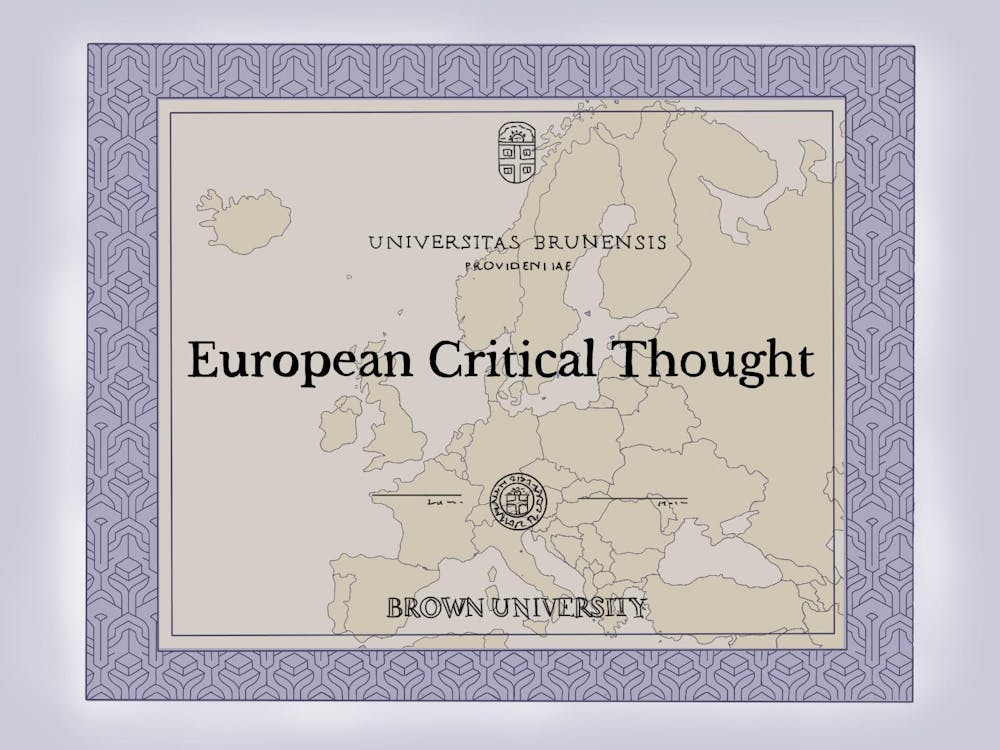After an 18-month long effort, the German studies department is unveiling a new certificate in European critical thought. The program aims to provide students the opportunity to engage with thinkers such as Michel Foucault, Friedrich Nietzsche and Hannah Arendt.
The four-course certificate will provide a “scaffolded approach to foundational texts in critical theory, as well as its antecedents and legacy,” according to the program bulletin. If current juniors hoping to graduate in May 2026 still want to declare the certificate, they must do so prior to the end of classes on April 25.
The new certificate joins five other undergraduate certificate programs, which range from entrepreneurship to intercultural competence. Undergraduate certificates were added to the college curriculum in the 2019 academic year to provide learning pathways that complement concentrations, The Herald previously reported.
Students who have declared a German studies concentration are ineligible for the certificate in European critical thought. Those double-concentrating are also excluded from completing any undergraduate certificate programs.
But the certificate is “transdisciplinary in nature” and could be combined “fruitfully” with a variety of concentrations, said Gerhard Richter, director of the certificate in European critical thought and a professor of German studies and comparative literature.
The certificate’s elective options, which will vary from year to year, currently include courses from the comparative literature and philosophy departments, among others.
Students completing the certificate will also have to partake in four sessions of the critical theory colloquium, “a three-hour forum for the intensive discussion of primary texts and recent research in critical theory that will be held at least once per semester,” according to the certificate bulletin.
The sessions will be open to the Brown community and will be an opportunity for students in the certificate program to present capstone research projects. Richter hopes that the colloquium will help build community in a “rigorous but also an inviting and hospitable setting,” he said.
“We fought hard to make this at least an option for all Brown students,” Richter added.
Richter said that he and Kristina Mendicino, the chair of German studies, led the effort to get the certificate approved by the College Curriculum Council.
The CCC is responsible for approving new additions to the undergraduate curriculum, including undergraduate certificate programs, according to their website. Richter said that he invited five students to the CCC’s Feb. 11 meeting — where the certificate was ultimately approved.
“I tricked them a little bit,” Richter said. “I didn’t tell them they would have to speak because I wanted them to speak from the heart.”
“They were so eloquent, and I was so proud of them,” he added.
At the CCC meeting, “I honestly just thought that we were going to be there to watch,” Karim Zohdy ’25 said. But, “I think it was good to have the student perspective,” he said.
Giuseppe Canta ’25 was also invited to the CCC meeting. The certificate is a “great idea,” he said. “It gives a name to something that people might not be familiar with as a structured form of thinking.”
Zohdy and Canta both took classes with Richter in the past.
As a double-concentrator in philosophy and comparative literature, Canta has already taken several courses related to European critical thought. If the certificate had been available earlier, he “would have certainly taken it,” he added.
“This certificate is offering a new, unified approach to something that’s already been at Brown,” Elizabeth Berman ’16 GS said. Berman, who has served as a TA for courses in the modern culture and media department, has recommended her students take courses in critical theory.
“If any of these courses sound intimidating, (students) should go in with the knowledge that reading and rereading and continually grappling with this (material) is what everyone’s doing, including their professors,” she said.
Formalizing the presence of critical theory at Brown was one motivation for developing the certificate program, Richter explained. But he also wanted to ensure that the certificate would “outlast us.”
The certificate is “an opportunity that I didn’t have,” Canta said, “and I’m hoping people make use of it.”

Kate Rowberry is a senior staff writer at The Herald.





